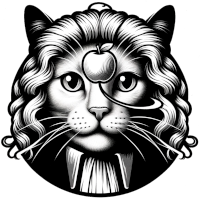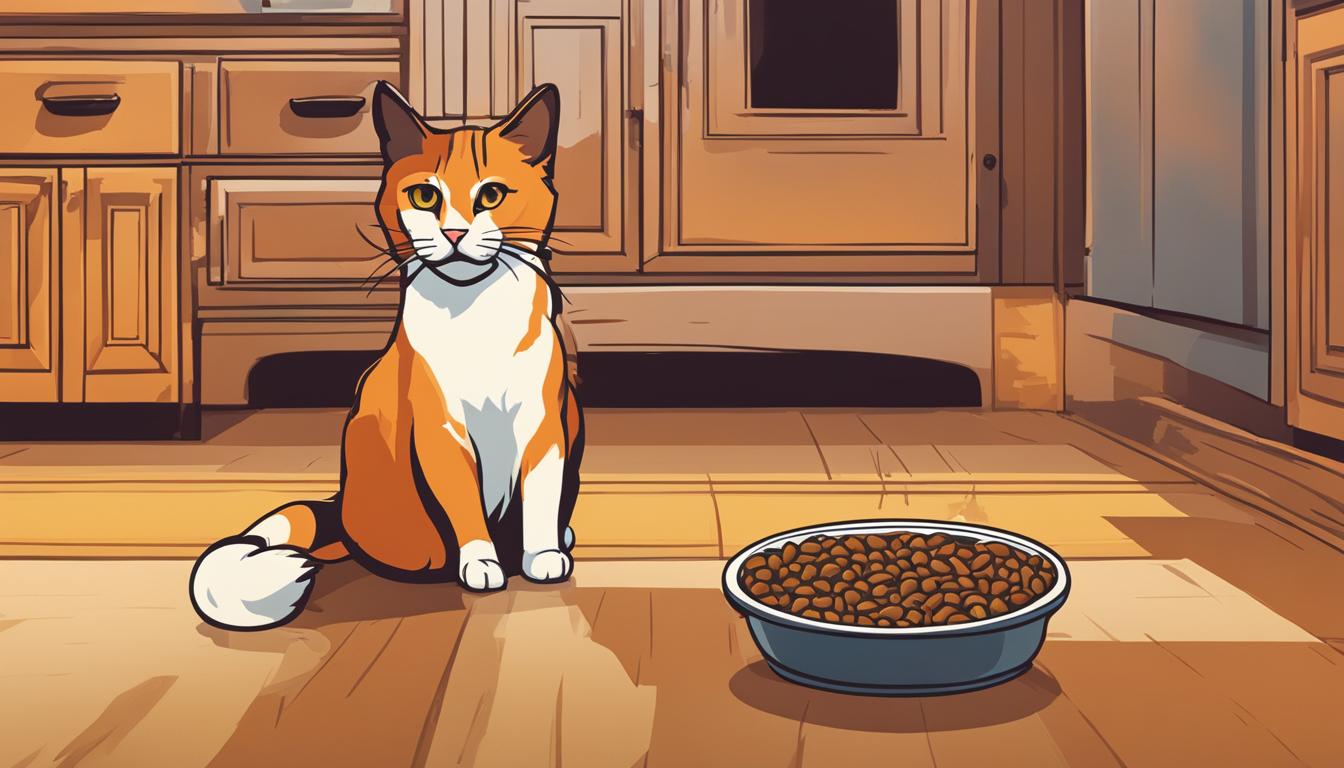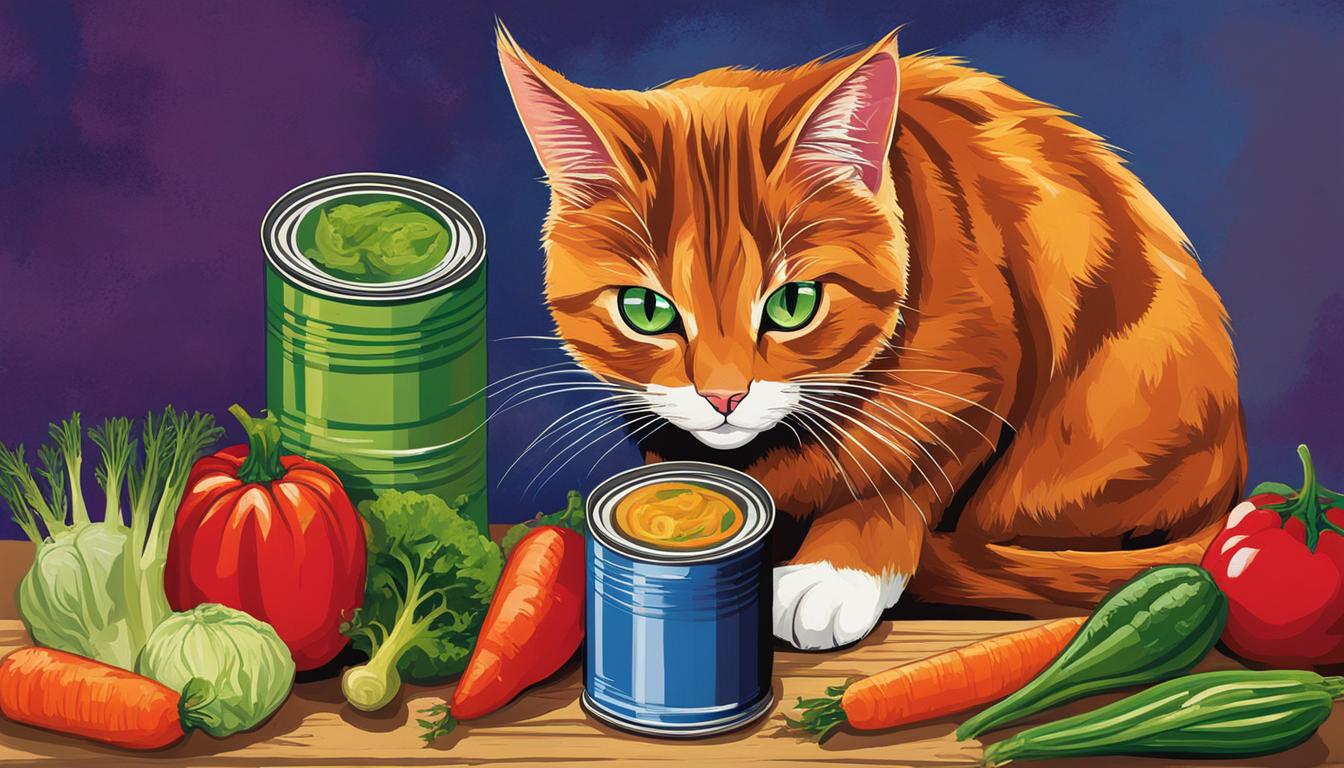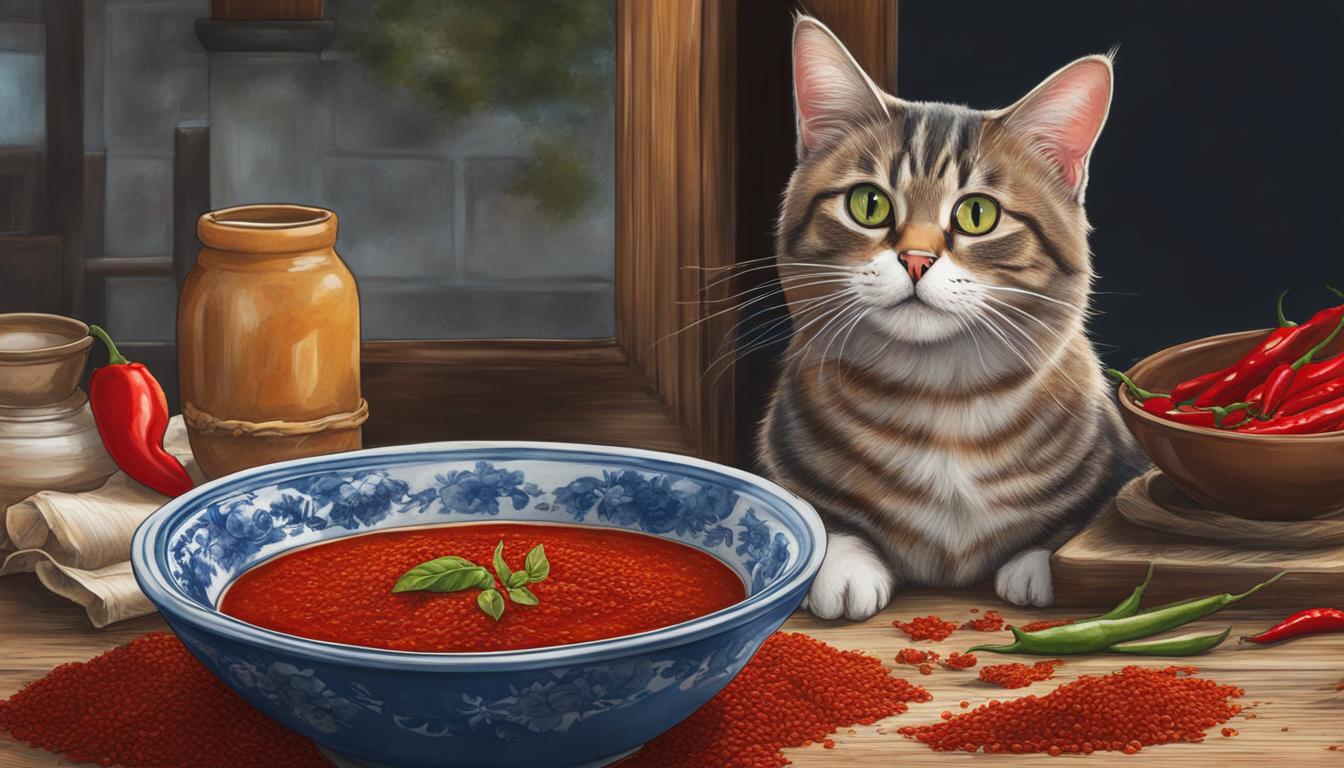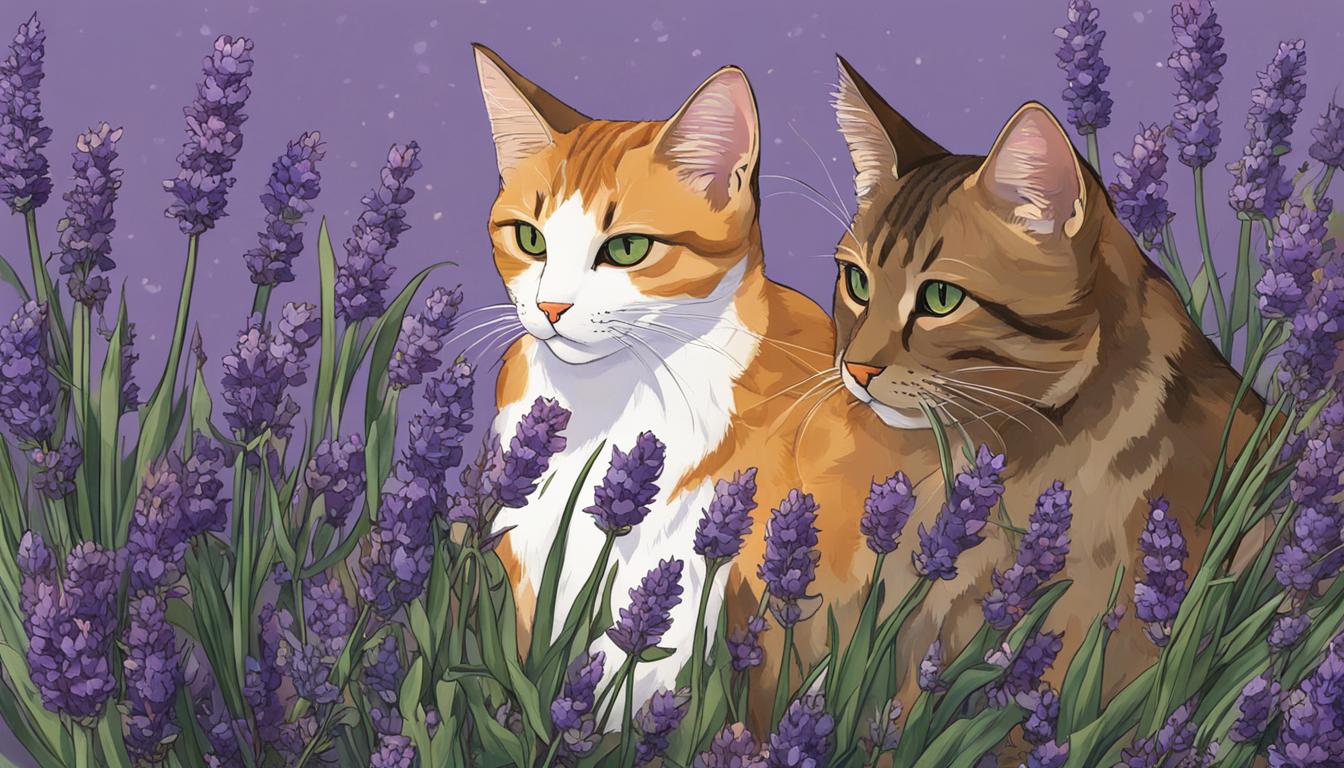Greetings, feline enthusiasts! Today, we’re delving into the curious world of cross-feeding and tackling the age-old question: can cats eat dog food? As a devoted cat lover, I’ve often wondered about the consequences of our feline friends indulging in the occasional taste of their canine companions’ cuisine. Join me on this informative journey as we unravel the facts and shed light on the nutritional implications.
Key Takeaways:
- Cats can safely consume small amounts of dog food without toxicity, but it shouldn’t be a long-term diet.
- Dog food lacks essential nutrients that cats need, such as higher levels of protein, taurine, and arachidonic acid.
- Feeding cats dog food long-term can lead to detrimental health consequences.
- Cat food is specifically formulated to meet the nutritional requirements of our obligate carnivorous friends.
- There are alternative treats available specifically made for cats to ensure their nutritional needs are met.
The Nutritional Differences Between Cat and Dog Food
When it comes to the nutritional needs of our feline friends, it’s important to understand the significant differences between cat and dog food. While both types of food may look similar, they are formulated to meet the specific dietary requirements of each species.
Cats are obligate carnivores, meaning they require a diet rich in animal proteins and fats. On the other hand, dogs are omnivores and can derive nutrition from both plant and animal sources. This fundamental distinction in their natural dietary preferences is reflected in the composition of their respective foods.
One of the key nutritional differences between cat and dog food is the level of protein. Cats require a higher percentage of protein in their diet compared to dogs. This is because they have a higher metabolic rate and need the amino acids found in proteins to fulfill their energy needs. Additionally, cat food contains specific nutrients that are essential for feline health, such as taurine, arachidonic acid, vitamin A, and niacin, which are either absent or present in inadequate amounts in dog food.
| Cat Food | Dog Food | |
|---|---|---|
| Protein Content | Higher | Lower |
| Taurine | Presents | Absent or insufficient |
| Arachidonic Acid | Presents | Absent or insufficient |
| Vitamin A | Presents | Absent or insufficient |
| Niacin | Presents | Absent or insufficient |
As shown in the table above, cat food contains these essential nutrients that are crucial for various aspects of feline health. Taurine, for example, is vital for cats’ eyesight and overall well-being, while arachidonic acid supports their liver and kidney function. The presence of sufficient levels of vitamin A and niacin in cat food contributes to healthy coat quality, muscle strength, and overall growth.
Given these nutritional differences, it is essential to provide cats with a balanced diet that meets their specific needs. Feeding them dog food as a long-term substitute can lead to nutritional deficiencies and potential health issues. It’s always best to consult with a veterinarian for guidance on providing cats with the appropriate nutrition for their optimal health and well-being.
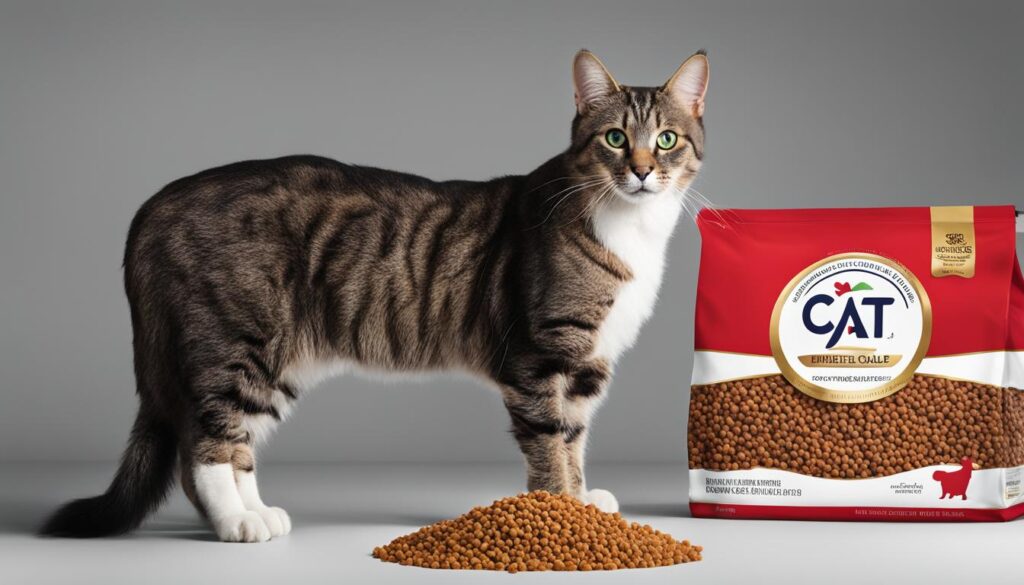
Risks of Feeding Dog Food to Cats
Feeding dog food to cats on a long-term basis can have serious risks and detrimental effects on their health. While cats may be able to safely consume small amounts of dog food without immediate toxicity, it is important to understand that dog food is not nutritionally balanced for cats and does not meet their specific dietary requirements. Cats are obligate carnivores, meaning they require a diet primarily based on meat. Dog food, on the other hand, is formulated for the nutritional needs of dogs, which are omnivores.
The lack of essential nutrients in dog food can lead to various health issues in cats. One of the major concerns is taurine deficiency. Taurine is an essential amino acid that cats cannot produce on their own and must be obtained through their diet. A lack of taurine can lead to serious health problems, including vision and heart issues. Additionally, dog food may also lack adequate levels of other important nutrients for cats, such as arachidonic acid, vitamin A, and niacin, which are crucial for their overall well-being.
To ensure the optimal health and well-being of your cat, it is highly recommended to switch them from a dog food diet to a balanced cat food diet that meets their specific nutritional needs. Consult with a veterinarian to determine the best approach and gradually transition your cat to a cat-specific diet. Providing your cat with the right nutrients will help prevent nutritional deficiencies and promote their overall health and longevity.
| Risks of Feeding Dog Food to Cats |
|---|
| Taurine Deficiency |
| Dog food lacks sufficient levels of taurine, an essential amino acid for cats. Taurine deficiency can lead to serious health issues, including vision and heart problems. |
| Lack of Other Essential Nutrients |
| Dog food may also lack adequate levels of other important nutrients for cats, such as arachidonic acid, vitamin A, and niacin. These nutrients are crucial for a cat’s overall well-being. |
| Potential Health Issues |
| Feeding cats dog food long-term can lead to various health problems, weakened muscles, blindness, heart issues, and fatigue. |
Cat-Specific Nutrients Missing in Dog Food
When it comes to providing a nutritionally balanced diet for cats, dog food falls short in several key areas. Cat-specific nutrients are crucial for their overall health and well-being, and unfortunately, these nutrients are often lacking in dog food formulations. Let’s take a closer look at some of the important cat-specific nutrients that are missing in dog food.
Taurine
Taurine is an essential amino acid for cats that plays a vital role in their eyesight and overall health. Cats cannot produce enough taurine on their own and must obtain it from their diet. While taurine is naturally present in meat-based proteins, it is not adequately supplied in most dog food formulas. This deficiency can lead to serious health issues in cats, including vision problems and heart disease.
Arachidonic Acid
Arachidonic acid is a type of omega-6 fatty acid that is necessary for cats’ liver and kidney function. It also helps support their skin and coat health. While dogs can produce arachidonic acid from other sources, cats rely on dietary intake to meet their needs. Unfortunately, dog food does not provide sufficient amounts of this essential nutrient for cats.
Vitamin A and Niacin
Vitamin A and niacin are important for cats’ overall growth, muscle strength, and coat quality. Cats have higher requirements for these nutrients compared to dogs. While dog food may contain some vitamin A and niacin, it is typically not enough to meet the specific needs of cats. Providing cats with a diet that lacks adequate levels of these nutrients can result in various health issues over time.
| Nutrient | Importance | Deficiency Effects |
|---|---|---|
| Taurine | Essential for eyesight and overall health | Vision problems, heart disease |
| Arachidonic Acid | Necessary for liver and kidney function, skin and coat health | Impaired organ function, dull coat |
| Vitamin A | Important for growth, muscle strength, and coat quality | Stunted growth, weakened muscles, poor coat quality |
| Niacin | Essential for growth and muscle strength | Stunted growth, weakened muscles |
Table: Nutrients Missing in Dog Food and Their Effects on Cats
Given the importance of these cat-specific nutrients, it is crucial to provide cats with a balanced diet that meets their specific nutritional needs. While homemade cat food recipes can be an option, it is recommended to consult with a veterinarian to ensure the recipes are nutritionally complete and appropriate for your cat’s individual requirements. Veterinarians can provide guidance on ingredients, proportions, and cooking methods to ensure that homemade cat food provides all the necessary nutrients cats need for optimal health.
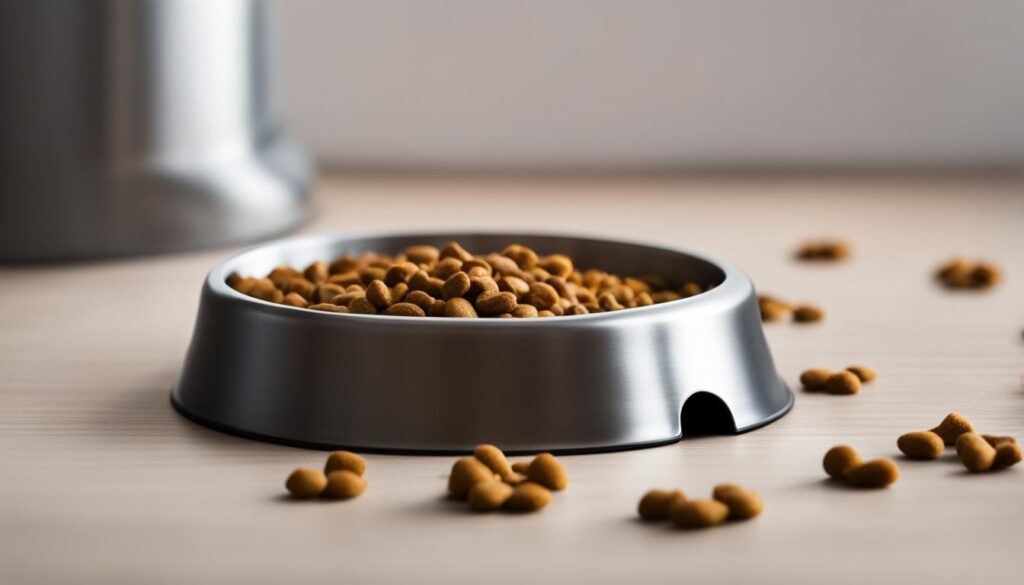
Alternative Treats to Dog Food for Cats
If you’re looking for alternative treats for your feline friend, there are plenty of options available that are specifically designed for cats. These treats ensure that your cat receives the proper nutrition while still satisfying their taste buds. While it’s generally uncommon for cats to be interested in dog food, it’s important to provide them with treats that are safe and beneficial to their health.
Cat-specific treats: There are many brands that offer treats specifically formulated for cats. These treats are usually made with high-quality ingredients that meet the nutritional needs of cats. They come in a variety of flavors, textures, and shapes to cater to different preferences. Whether your cat loves crunchy treats or prefers soft and chewy ones, you can find options that will keep them happy and healthy.
“My cat absolutely loves the cat-specific treats I got for her. They’re packed with all the essential nutrients she needs, and she goes crazy for them!” – Cat owner
Homemade treats: If you prefer to make treats for your cat at home, there are numerous recipes available online that are safe and nutritious. You can use ingredients like chicken, fish, or even pumpkin to create tasty treats that your cat will adore. Homemade treats allow you to have full control over the ingredients, ensuring that your cat gets the best quality treats without any harmful additives or preservatives.
When switching your cat from dog food to a cat food diet, it’s important to do so gradually to prevent any digestive upsets. Start by mixing a small amount of cat food into their regular dog food and gradually increase the proportion of cat food over time. This will allow your cat’s digestive system to adjust to the new diet without any issues. Consult with your veterinarian for personalized guidance and recommendations based on your cat’s specific needs and health conditions.
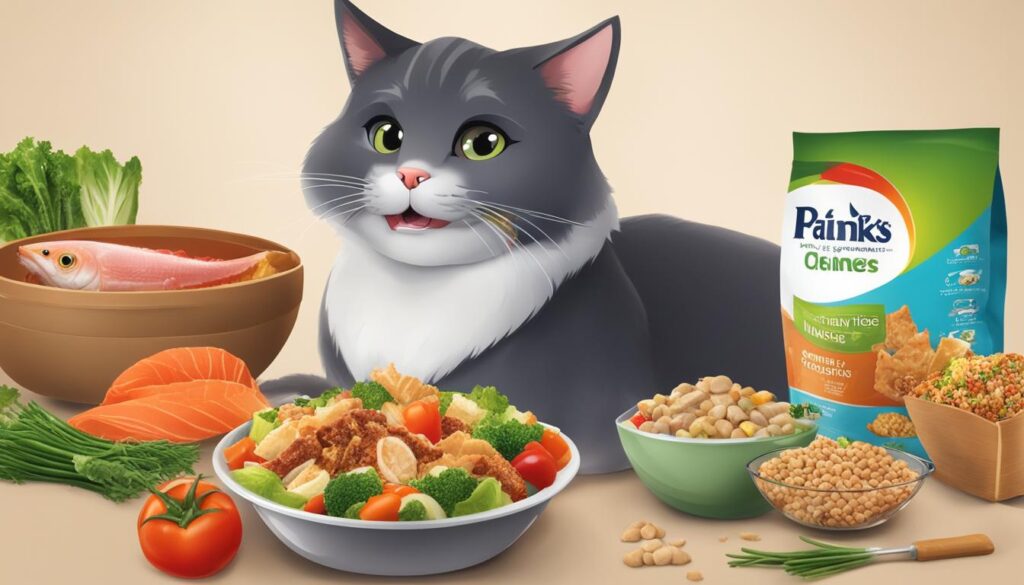
Comparison Table: Alternative Treats for Cats
| Treat Type | Features | Benefits |
|---|---|---|
| Cat-specific treats | Formulated for cats’ nutritional needs | Provides essential nutrients, available in various flavors and textures |
| Homemade treats | Customizable ingredients, no additives | Allows full control over ingredients, avoids harmful additives |
Remember, treats should only make up a small portion of your cat’s diet. A balanced cat food diet that meets their nutritional needs should be the main focus of their meals. Treats should be given in moderation to prevent excessive weight gain and to ensure that your cat’s overall diet remains balanced and complete.
Conclusion
Well, it seems we’ve uncovered the truth about cats and dog food. While it may be tempting to let your feline friend indulge in a bowl of dog food every now and then, it’s important to remember that it should only be an occasional treat. Cats have unique nutritional needs that dog food simply doesn’t meet, making it unsuitable for long-term feeding.
A balanced diet is essential for cats to thrive, and dog food falls short in providing the necessary nutrients such as taurine, arachidonic acid, vitamin A, and niacin. These components are crucial for a cat’s overall health, from their coat quality to their muscle strength and even their eyesight.
So, if you’re considering switching your cat from dog food to cat food, you’re making a wise decision. Ensuring that your feline companion receives a diet tailored to their specific nutritional needs will help them live a healthy and vibrant life. Remember, a gradual transition is key for a smooth switch, and consulting with a veterinarian can provide valuable guidance during this process.
Ultimately, when it comes to can kittens have dog food, the answer is yes, but only in moderation. Let’s prioritize the well-being of our beloved feline friends and provide them with the balanced and nutritious diet they deserve.
FAQ
Can cats safely eat dog food?
Yes, cats can safely eat dog food in small amounts without any toxicity or lasting effects.
Is dog food nutritionally balanced for cats?
No, dog food is not nutritionally balanced for cats and should not be provided to them as a long-term diet.
What are the nutritional differences between cat and dog food?
Cat food has higher levels of protein, taurine, arachidonic acid, vitamin A, and niacin, which are lacking in dog food.
What are the risks of feeding dog food to cats?
Feeding cats dog food long-term can lead to detrimental health consequences, including taurine deficiency, vitamin A deficiency, and decreased protein intake.
What cat-specific nutrients are missing in dog food?
Dog food lacks essential nutrients for cats such as higher levels of taurine, arachidonic acid, vitamin A, and niacin.
Are there alternative treats to dog food for cats?
Yes, there are many options available, such as cat-specific treats or homemade treats specifically made for cats.
Can kittens have dog food?
It is not recommended to feed kittens dog food as their nutritional needs are different from adult cats. It is best to provide them with a balanced diet formulated for kittens.
What is the importance of a balanced diet for cats?
A balanced diet ensures that cats receive all the necessary nutrients for their overall health and well-being.
How can I switch my cat from dog food to cat food?
It is recommended to consult with a veterinarian for guidance on the best approach for a smooth transition from dog food to a balanced cat food diet.
